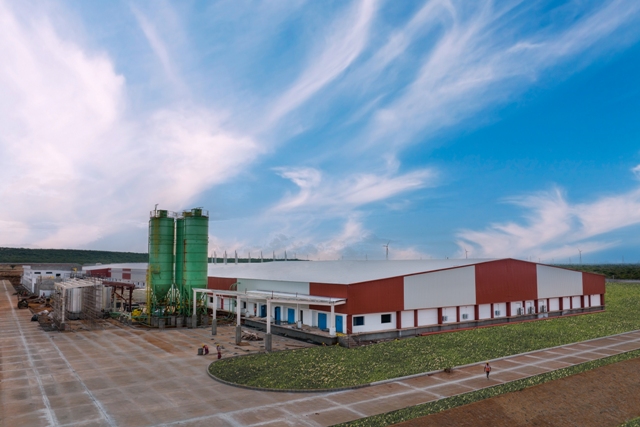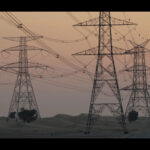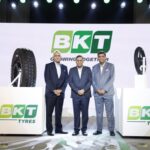Everest executes Britannia’s Green Field project in Tamil Nadu
Project Brief
Everest is a pioneer and a leader in the steel buildings industry with a rich experience of delivering over 3500 buildings and a combined area of more than 130 million sq ft in various sectors.
Britannia’s green field plant at Tirunelveli, Tamil Nadu, for manufacturing bakery products is an aspirational project in many aspects because of its exacting demands. Britannia awarded the contract to Everest after a rigorous bidding process and due diligence. Everest’s ability to understand the project requirements and execute critical manufacturing facilities in FMCG made Everest a trusted partner for the Tirunelveli Greenfield Factory. This facility will produce a variety of bakery products like biscuits and rusks to cater to the southern market of India. The scale of the project could be realized from the massive production capacity which made the project much more significant in terms of resource deployment from Everest.
C R Narayana Rao (Consultants) Pvt Ltd was appointed as the consultant for this project and under their able guidance and well-coordinated interactions the team was able to ensure the completion of the design phase within the planned schedule.
Britannia had a very specific set of requirements for this project which made the job clear in terms of project needs. Right from the planning stage, emphasis was laid on optimum design. Equipment and machinery required special consideration for efficient movement of raw materials and people inside the building. At the same time, Everest wanted to make sure that the modern manufacturing facility reflected brand identity of the company.
Material of construction
The finished goods require standard temperature for maintaining their freshness until dispatch. High-performance Everest Double-skinned Roofing with mineral wool insulation was used with specific “R Value” to keep the process area inside the building at the desired temperature.
Architectural features
Building aesthetics was considered an important criterion in the planning stages. During the design phase, an aesthetic look was considered to make the building look different from a generic industrial building.
Provisions were made for natural light by using Multicell Polycarbonate sheets which ensured ambient light and working conditions inside the building.
Since the factory is a food facility, building enclosure requirements and temperature control environment were critical tasks in this project. Several openings were provided for controlled air circulation which was achieved with a combination of louvers and roof ventilation systems.
Geometry
Given the size and capacity of the factory, the client wanted maximum utilization of the space for efficient material and people movement. The geometry was decided based on the production process. Wisely planned geometry with complex structural designing and framing patterns comprising of mono slope frames of different spans, including clear span as well as multi-span frames with optimum column sizes, were used to ensure maximum space was available for operational working. This made unobstructed space available for accommodating the production equipment requirements.
Challenges
The building required many chimney openings for operational necessities, which in turn made roof sheeting more challenging. By using specially designed Metal Roof Curbs the team was able to meet the requirements of the client and ensure leakproof and watertight functionality of the building.
To accommodate the heavy rainfall of the area, gutter and down take pipes were optimally designed for water drainage and to prevent water stagnation. These down-take pipes were also connected to a rainwater harvesting system for water conservation.
The site was prone to high wind speeds owing to open terrain. There was water stagnation during monsoons and downpour of debris from nearby mountains which made the execution process cumbersome. However, coordinated efforts of the client, consultant, design team and erection team managed seamless site execution during the project tenure.
Extreme humidity and adverse working conditions were addressed during the execution stage by properly motivating the workers time and again, which ensured the successful completion of the project.
Since Everest’s facility was located in Gujarat, ensuring the supply of materials from Western India to down South and also that there was no cost overrun, was a critical task.
Additionally, the specific choice of colors in wall cladding was another challenge since sourcing specific shade from steel vendors required minimum order quantity challenges to be met. Moreover, supplying the material at the site within the expected time was another challenge.
In conclusion
Open discussions among the stakeholders during all stages of the project helped in solving challenges. The Everest team received excellent support from Britannia’s project team officials and the consultants during the execution phase.
This project certainly proved that Everest will be considered a strong contender for projects in the Southern part of India. This also removes the general perception that owing to logistical challenges, the costs are not economical. The Britannia project in Tirunelveli is a testimony that economical and efficient designs overcome geographical barriers in winning orders.





